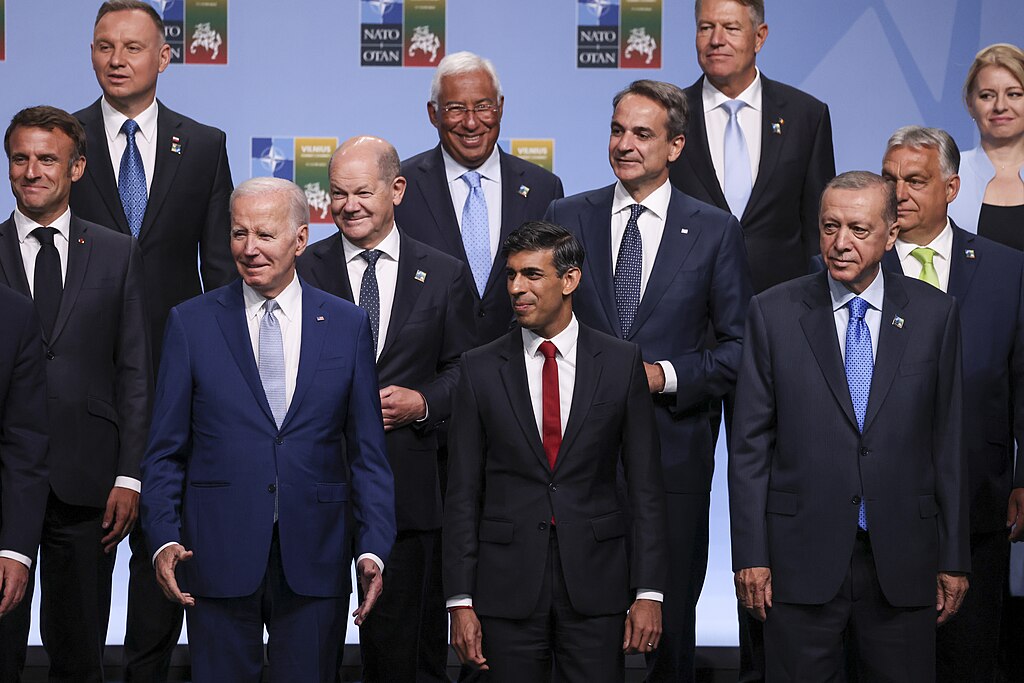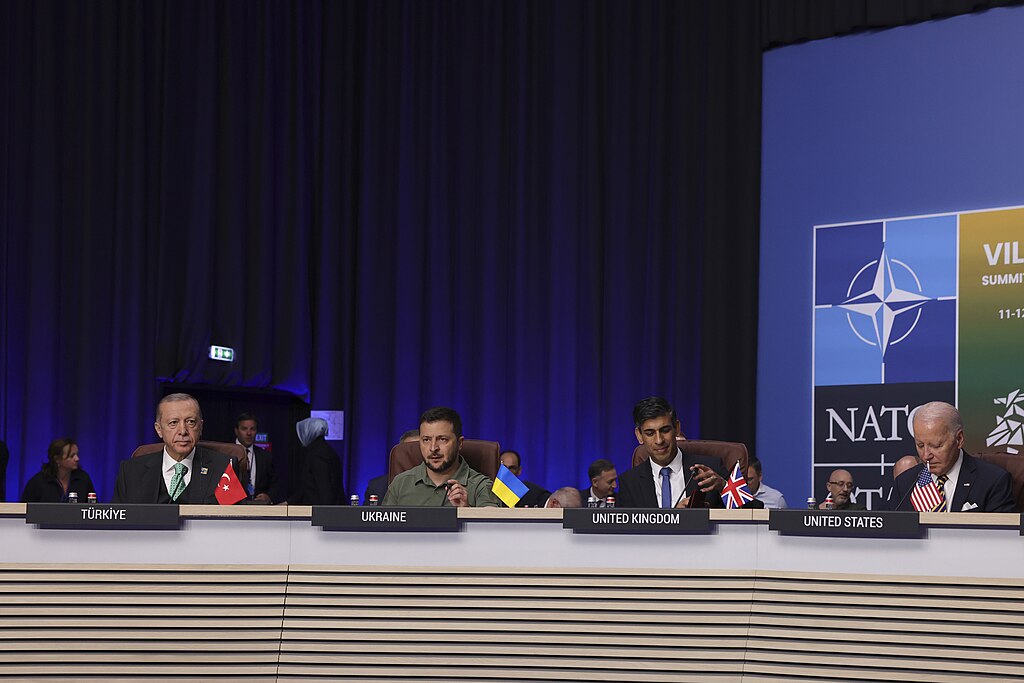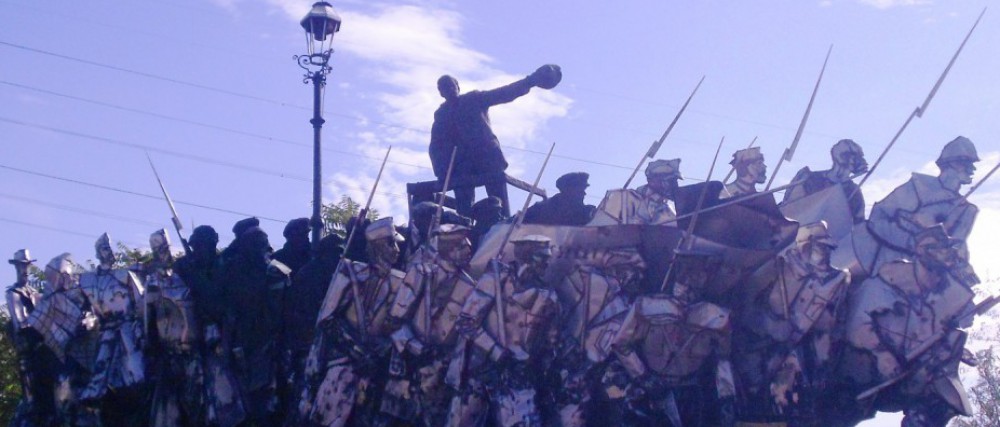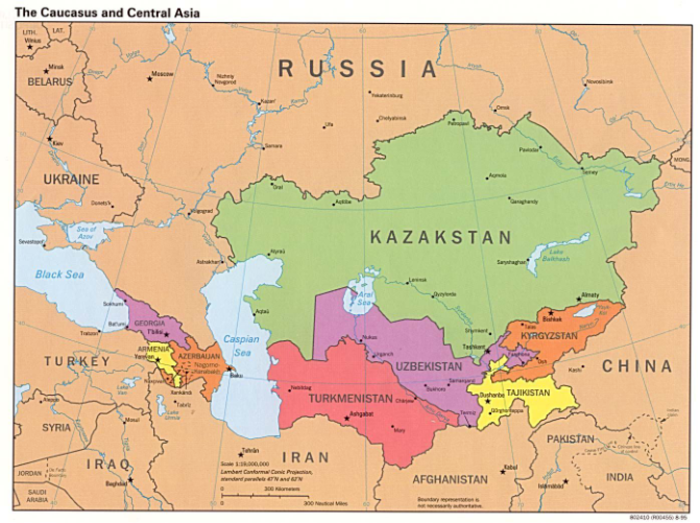The shift was subtle and transformative. Over the past two weeks, Turkey’s President Recep Tayyip Erdogan has made several important moves that signal he is distancing himself from Vladimir Putin and Russia. The moves were a classic case of gradually and then suddenly. One of the smaller, more telling moves that signaled a change in Turkish policy occurred when Erdogan returned five Azovstal commanders from the Siege of Mariupol to Ukraine. These commanders had been imprisoned, but then allowed into Turkey with the agreement that they would stay there for the duration of the war. Erdogan unilaterally decided to let them go home. This infuriated the Kremlin, but the Putin regime was powerless to stop it. Erdogan had fired the initial shot across the bow as to Turkey’s future intentions.

Standing with Allies – Recep Tayyip Erdogan at NATO summit in Vilnius
(Credit: UK Prime Minister)
User Mentality – Electoral Calculations
Erdogan’s turn to the west was surprising, but not altogether shocking. He has a reputation for head spinning shifts in his policies. When Erdogan no longer finds something politically useful, he quickly discards it. If this means doing a complete about face, then so be it. His instincts are centered around his own political survival. This has become more pronounced the longer he has been in power (Erdogan has ruled Turkey as either the Prime Minister or President since 2005). Whatever works best for Erdogan to secure his power base and popularity at home becomes his preferred policy. His shifts on the war in Ukraine illustrate this. Erdogan spent the first 500 days of the war cultivating both sides. He positioned himself as an intermediary between the west, Ukraine, and the Kremlin. This was not done out of generosity or a sudden urge to create a diplomatic legacy. Instead, Russia was central to his electoral plans. He found it economically useful in boosting his prospects in the 2023 Turkish Presidential election.
Erdogan subsequently won the election, even though his margin of victory was much slimmer than in the past. That is because the Turkish economy has been hit by skyrocketing inflation over the past several years. This is due to Erdogan’s unorthodox economic policy of keeping interest rates low which inflation soars. Turkey’s central bank exhausted its reserves defending the lira which has been plummeting in value. Following his reelection. Erdogan has given signals that he is moving back towards economic orthodoxy. Secure in his presidency for the next five years, Erdogan finds Russia much less useful to his interests. Due to its isolation, Russia relies on Turkey as a middleman for its trade. This helps stabilize the increasingly fragile Russian economy. The Kremlin has few allies and little choice but to continue cultivating the Turks.
The flow of Russians moving to Turkey has lessened from earlier in the war. Erdogan will continue to milk these self-exiled Russians for all they are worth to the Turkish economy. The exiles have few places to turn besides Turkey that offer both a western lifestyle and affordability. Other areas of the Middle East such as Dubai are prohibitively expensive for middle class Russians. All this gives Erdogan leverage. He can use this leverage to give the Putin regime the cold shoulder. There is little the Kremlin can do about it except verbally protest. This is the compromising position Russia finds itself in due to Putin’s decision to launch the full-scale invasion of Ukraine. Russia’s frenemies such as Turkey and China hold all the cards. A canny political operator like Erdogan is now taking full advantage of this situation.

Frenemies – Recep Tayyip Erdogan & Vladimir Putin in September 2022 (Credit: kremlin.ru)
Coup De Grace – The Westward Pivot
The coup de grace of Erdogan’s pivot to the west came in Vilnius, Lithuania just before the NATO Summit began. Erdogan had been holding up Sweden from joining NATO because in his opinion they were not doing enough to deal with their Kurdish population fomenting anti-Turkish resistance. Erdogan has requested that several Kurdish exiles be returned to Turkey for prosecution for attempted coup on him in 2016. The Swedish parliament recently passed laws to deal more stringently with Kurds involved in terrorist activities. Leading up to the summit, Erdogan still insisted that Sweden’s efforts had not been enough. Then suddenly he arrived in Vilnius and announced that he would allow Sweden’s request for NATO membership to go forward. Erdogan had met with NATO’s Secretary General Jens Stoltenberg and Swedish Prime Minister Ulf Kristersson beforehand. American president Joe Biden had also spoken with him. Whatever was said in these meetings helped ultimately seal the deal.
Erdogan stole the spotlight with his announcement. He was all smiles, as were the leaders of other NATO member states. We do not know Vladimir Putin’s reaction, but it certainly was not a smile. The Kremlin issued a statement to the effect that allowing Sweden to join would only lead to further problems between NATO and Russia. That is true, insofar as the problems are all on Russia’s side. They are hemmed in on their western flank. The Baltic Sea will now be dominated by NATO members with the accession of Finland and Sweden. Furthermore, Russia no longer has an outlet from the Black Sea to the Aegean and Mediterranean since Turkey closed the Bosphorus straits to all military ships after the war began. Russia’s inability to keep Erdogan from turning to the west is a major strategic blow. With a couple of decisions, Erdogan has damaged Putin and further isolated Russia.

Show of force – Recep Tayyip Erdogan alongside Volodomyr Zelensky at NATO Summit (Credit: UK Prime Minister)
Erdogan’s Solution – Without Restraint
One aspect of Erdogan’s pivot away from Russia has been overlooked by many commentators. This involves the 2016 attempted coup in which he was nearly overthrown. In its aftermath, Erdogan reasserted his authority with a vengeance. Tens of thousands were arrested. Anyone suspected of the least bit of involvement faced criminal charges. Thousands have never seen the light of day since Erdogan struck back. Whatever one thinks of Erdogan’s strongman tendencies, no one doubts that he is charge of Turkey. Erdogan’s strong counterreaction to the attempted coup is the opposite of Putin’s to the recent mutiny led by Yevgeny Prigozhin and his Wagner group mercenaries. Putin has been forced to compromise with the mutineers. He reportedly met with them to explain his opinion of their actions. Conversely, Erdogan acted without restraint in response to the attempted coup against him, It is doubtful that Erdogan has much respect left for Putin. Strongmen like Erdogan respect strength. That is something Putin has lost, along with a valuable ally.
Click here for: Symbolism & Strategy – The Second Attack On Kerch Bridge (The Russian Invasion of Ukraine #330)



